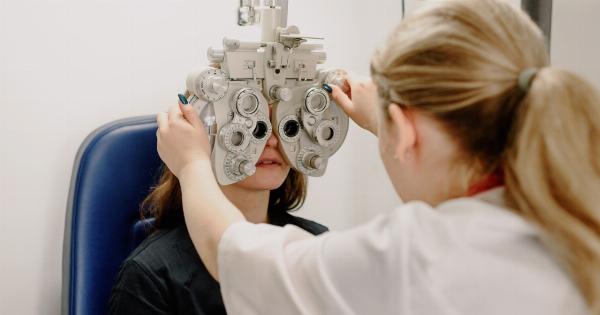Losing your sight can be a life-altering experience that affects every aspect of your daily routine. Whether it happens gradually or suddenly, coping with vision loss requires adjustments in both your physical environment and your emotional well-being.
This comprehensive guide will provide you with everything you need to know about losing your sight, including the different causes, potential treatments, coping strategies, and resources available to help you navigate through this challenging journey.
Causes of Vision Loss
Vision loss can be caused by various factors, including:.
- Age-related macular degeneration (AMD): This condition is the leading cause of vision loss among individuals aged 50 and older.
- Glaucoma: Glaucoma damages the optic nerve and can result in peripheral vision loss or even blindness if left untreated.
- Cataracts: Clouding of the lens in the eye can cause blurry vision and, if severe, can impair sight.
- Diabetic retinopathy: People with diabetes are at an increased risk of developing this condition, which can lead to vision loss if blood sugar levels are not well-controlled.
- Retinal detachment: When the retina detaches from the back of the eye, it can cause significant vision loss if not promptly treated.
Diagnosis and Treatment
Early detection and proper diagnosis of the underlying cause of vision loss are crucial for effective treatment. If you notice any changes in your vision, it is important to consult an eye care specialist as soon as possible.
They may perform various tests, including:.
- Visual acuity test: Measures how well you can see at various distances.
- Visual field test: Checks for any gaps or defects in your field of vision.
- Retinal examination: Allows the eye doctor to examine the back of your eye.
- Fluorescein angiography: Involves injecting dye into your bloodstream to evaluate blood flow in your retina.
The treatment options for vision loss will depend on the specific cause. Some possibilities include:.
- Medications: Certain conditions, such as AMD or diabetic retinopathy, can be managed with medications.
- Surgery: In cases of cataracts or retinal detachment, surgical intervention may be necessary.
- Vision aids: Various devices, such as glasses, contact lenses, or magnifiers, can help enhance your remaining vision.
- Rehabilitation programs: These programs focus on training and teaching adaptive skills to maximize independence despite vision loss.
Coping Strategies for Daily Life
Adapting to vision loss requires adopting new strategies for everyday activities. Here are some helpful tips:.
- Organize your environment: Keep your living space clutter-free and establish a system for locating essential items.
- Utilize assistive technology: Consider using screen readers, voice-activated assistants, and other tools that can simplify tasks.
- Embrace tactile marking: Use braille labels, raised dots, or color contrast to differentiate objects.
- Develop a routine: Establishing a structured daily routine can help provide a sense of predictability and familiarity.
- Seek support: Join support groups or seek counseling to connect with others experiencing similar challenges and receive emotional support.
Resources for Support
When dealing with vision loss, numerous resources are available to assist you:.
- Low Vision Specialists: These professionals are trained to help individuals make the most of their remaining vision through optical aids and rehabilitation techniques.
- Orientation and Mobility Specialists: These experts focus on teaching safe and independent movement techniques for individuals with visual impairments.
- Counselors and Therapists: Mental health professionals can provide guidance and emotional support to cope with the psychological impact of losing your sight.
- Support Groups: Participating in local or online support groups can be immensely helpful in connecting with others facing similar challenges.
- Government Agencies and Nonprofit Organizations: These entities often offer a wide range of services, including vocational training, assistive technology loans, and advocacy.
Future Research and Advancements
Scientists and researchers are continually working on advancements in preventing and treating vision loss. Areas of research include:.
- Stem cell therapies: Stem cells hold the potential to restore damaged retinal cells and improve vision.
- Gene therapies: Gene editing techniques aim to correct inherited genetic mutations that cause vision loss.
- Bionic eyes: Visual prostheses that can stimulate the optic nerve are being developed to restore limited vision.
- Artificial intelligence: AI technology integrated into assistive devices can enhance visual recognition and provide real-time guidance.
Conclusion
Losing your sight can be a challenging and life-altering experience, but it doesn’t have to define your future. With the right support, resources, and mindset, individuals with vision loss can continue to lead fulfilling lives.
By understanding the causes, seeking proper diagnosis and treatment, implementing coping strategies, and utilizing available support systems, you can navigate through this journey with resilience and adaptability.


























